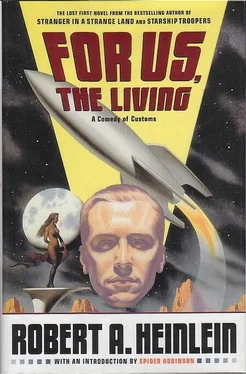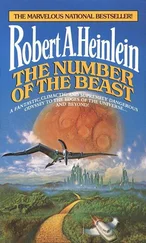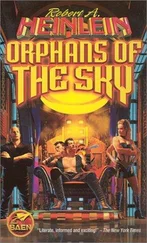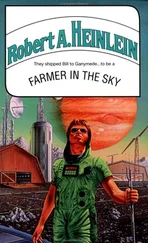Robert Heinlein - For Us, The Living
Здесь есть возможность читать онлайн «Robert Heinlein - For Us, The Living» весь текст электронной книги совершенно бесплатно (целиком полную версию без сокращений). В некоторых случаях можно слушать аудио, скачать через торрент в формате fb2 и присутствует краткое содержание. Жанр: Фантастика и фэнтези, на английском языке. Описание произведения, (предисловие) а так же отзывы посетителей доступны на портале библиотеки ЛибКат.
- Название:For Us, The Living
- Автор:
- Жанр:
- Год:неизвестен
- ISBN:нет данных
- Рейтинг книги:3 / 5. Голосов: 1
-
Избранное:Добавить в избранное
- Отзывы:
-
Ваша оценка:
- 60
- 1
- 2
- 3
- 4
- 5
For Us, The Living: краткое содержание, описание и аннотация
Предлагаем к чтению аннотацию, описание, краткое содержание или предисловие (зависит от того, что написал сам автор книги «For Us, The Living»). Если вы не нашли необходимую информацию о книге — напишите в комментариях, мы постараемся отыскать её.
For Us, The Living — читать онлайн бесплатно полную книгу (весь текст) целиком
Ниже представлен текст книги, разбитый по страницам. Система сохранения места последней прочитанной страницы, позволяет с удобством читать онлайн бесплатно книгу «For Us, The Living», без необходимости каждый раз заново искать на чём Вы остановились. Поставьте закладку, и сможете в любой момент перейти на страницу, на которой закончили чтение.
Интервал:
Закладка:
Of course, Upton Sinclair was not the first writer to suggest solutions to social problems in the form of fiction—Utopias (perfect worlds) and dystopias (nightmare worlds) were well-known literary forms by 1938. Heinlein would have known of the genre's two most famous practitioners: Edward Bellamy and H. G. Wells, both major influences on Upton Sinclair's Utopian socialism. Bellamy's 1887 Looking Backward remains the most famous Utopian novel ever written by an American and may well be the book Heinlein had in mind when writing this first novel. In both novels, the main character awakens in the future to find an ideal society he does not understand. Through a series of Socratic dialogues, the protagonists (and the audience) learn how such a wonderful world can truly exist. Wells, whose "scientific romances" established the paradigms of science fiction for much of the twentieth century, also wrote many novels that portrayed future Utopias and dystopias. When the Sleeper Wakes was a particular favorite of Heinlein's (the 1910 revision The Sleeper Awakes was the book H. G. Wells autographed for Heinlein when they met). The 1936 film Things to Come, adapted by Wells from his earlier novel, The Shape of Things to Come, ends with a launch into outer space, as does For Us, The Living.
Heinlein was primed by these writers, as well as by the science fiction pulp magazines he read regularly, to trumpet the future as a wonderful opportunity for progress. When he sat down to write For Us, The Living he was trying to do what he had done throughout his four years of political activity and would continue to do for much of his writing career—generate change for the better. The title comes from Abraham Lincoln's Gettysburg Address:
It is for us, the living, rather, to be dedicated to the unfinished work which they who fought here have thus far so nobly advanced. It is rather for us to be here dedicated to the great task remaining before us—that from these honored dead we take increased devotion to that cause for which they gave the last full measure of devotion—that we here highly resolve that these dead shall not have died in vain, that this nation, under God, shall have a new birth of freedom....
If Robert Heinlein could not achieve social change through his political efforts, perhaps he might achieve it through the pen, to gain that "new birth" that is so central to his fiction.
Anybody who has read Robert Heinlein will recognize that he offered provocative commentary on our society and advocated for radical social change. Indeed, his politics have often confused people. How could a man who supported the Socialist Upton Sinclair and the Democrat FDR become a supporter of arch-conservative Republicans Barry Goldwater and Jeanne Kirkpatrick? As Heinlein once explained to Alfred Bester in 1959, "I've simply changed from a soft-headed radical to a hard-headed radical, a pragmatic libertarian...." Heinlein's apparent change in politics makes sense if viewed this way: he saw problems that were not being solved and went to the political forces he believed had the greatest chance of solving them. In 1938, the most dangerous problem he perceived was the Great Depression, and he looked to FDR and Upton Sinclair for results; in 1959, it was nuclear war and communism (a hatred for which Heinlein developed before World War II, not with the Cold War). He supported Barry Goldwater in 1964 because he believed Goldwater would be far more effective against the Soviets than Lyndon Johnson.
Throughout his career, he would suggest solutions to the problems he perceived in society, always implicitly, if not explicitly. Oliver Wendell Holmes said, "Man's mind, once stretched by a new idea, never regains its original dimensions." Heinlein's writing does just that, stretching our minds, teaching us to think and learn, even while entertaining us. If we want to solve persistent problems, we have to think about them in new ways. In criticism of his later works, particularly from the time of Starship Troopers on, the most frequent objection is that Heinlein is "lecturing" the reader. If only all of our teachers could hold such wonderful seminars! As is evident in For Us, The Living, from the very beginning he wanted to present controversial ideas in his work. In writing for Astounding, he learned to produce commercial fiction, focusing on plot and characters and sheer story. Once he built an audience who would read whatever he wrote, he moved the challenging themes back to the forefront, as in this first novel. If readers were outraged by his ideas or by their presentation, so much the better.
Late in life, Robert Heinlein told bookseller Alice Massoglia that he was going to have to change his name and write under a new one. Shocked, she asked, "Why?" His answer: "Because I think I've insulted everybody I can as Robert Heinlein!" Heinlein wanted to provoke response in order to wake up his readers and lead them to really think about the issues at hand.
As Heinlein told Campbell, For Us, The Living was "entirely concerned with the origin of certain dominant human thought patterns and how they might change if changes in the economic and social matrix shifted the survival values of these dominant mores. It attempted to show that most ethical standards were relative—that the terms vice and virtue depended on the psychological matrices." In this way, For Us, The Living reads more like one of his late novels, rather than one of his earlier works. The more didactic Heinlein of the later novels was always there, subdued in the Heinlein who wrote for Astounding and collected those paychecks. With the publication of For Us, The Living, the pattern of Heinlein's career takes a completely different shape—the later novels are not an aberration but the completion of a full circle.
So what unusual ideas does Heinlein present in this novel?
Ever hear of the metric system? Clearly, Heinlein felt it was a better standard of measurement, as his future society uses it exclusively.
Heinlein also believed that English spelling needed to be streamlined and made more logical; hence, the use of phonetic spellings such as "Astronomikal Almanak and Efmerides" and "corectiv masaj."
Interesting as well that Heinlein predicts a united Europe, although one different in governing structure and outcome than the one we see today. He also predicted a common European currency, which now exists as the euro.
In 1938, few people considered space travel anything but an insane fantasy. Here, as he so often did, Heinlein advocates rockets and space exploration. He was an avid follower of rocketry, even joining the American Interplanetary Society in 1931 (which became the American Rocket Society, later merged into the American Institute of Aeronautics and Astronautics). After his death, his third wife and widow, Virginia Heinlein, endowed the Robert Anson Heinlein Chair in Aerospace Engineering at the Annapolis Naval Academy.
For today's readers (and for many in 1938), the most unfamiliar idea is that of his proposed economy. The economic program Heinlein advocates is not original to him, and is known by the name of Social Credit. He used the same economic system in Beyond This Horizon, where it is referred to as the "Social Dividend" paid to each member of that society.
Heinlein's interpretation of Social Credit Theory was that financial panics and the entire boom and bust cycle are caused by the relationship between production and consumption. Economists recognize that when consumption falls behind production, nothing good can follow. The Great Depression was caused in large part by overproduction in the twenties, followed by layoffs and the resulting decrease in consumption. Farming constantly overproduced, as did other "sick industries" such as textiles and coal mining. FDR's solution was to pay farmers not to produce—which we have continued to do, although the recipients are mostly agricultural corporations these days and not individual farmers. As Heinlein looked around him in the thirties, what he saw were failed attempts to restore consumption. He pointed out, in For Us, The Living, that FDR had attempted to hand out direct relief and to provide public works, but as we now know, only the massive expenditures of World War II ended the Great Depression—by putting everybody back to work, thus allowing them to consume the goods being offered. Direct relief and public works were simply not enough.
Читать дальшеИнтервал:
Закладка:
Похожие книги на «For Us, The Living»
Представляем Вашему вниманию похожие книги на «For Us, The Living» списком для выбора. Мы отобрали схожую по названию и смыслу литературу в надежде предоставить читателям больше вариантов отыскать новые, интересные, ещё непрочитанные произведения.
Обсуждение, отзывы о книге «For Us, The Living» и просто собственные мнения читателей. Оставьте ваши комментарии, напишите, что Вы думаете о произведении, его смысле или главных героях. Укажите что конкретно понравилось, а что нет, и почему Вы так считаете.












